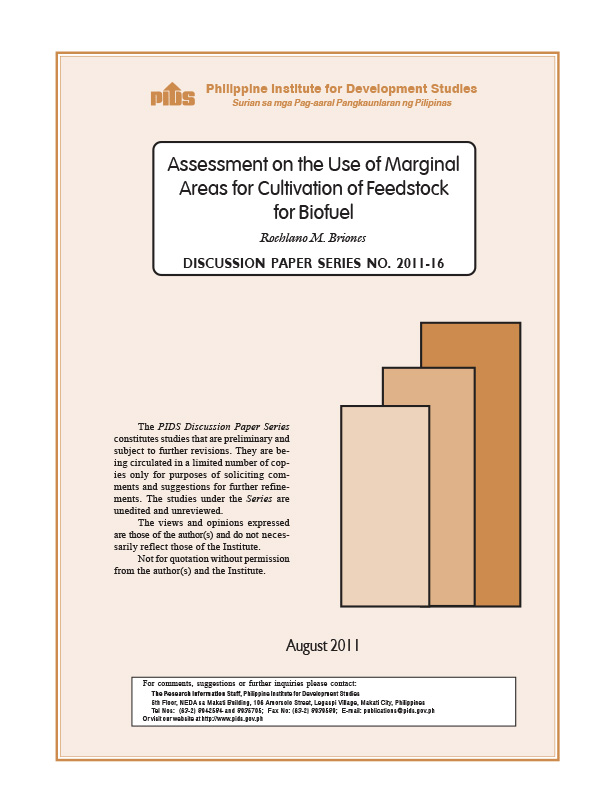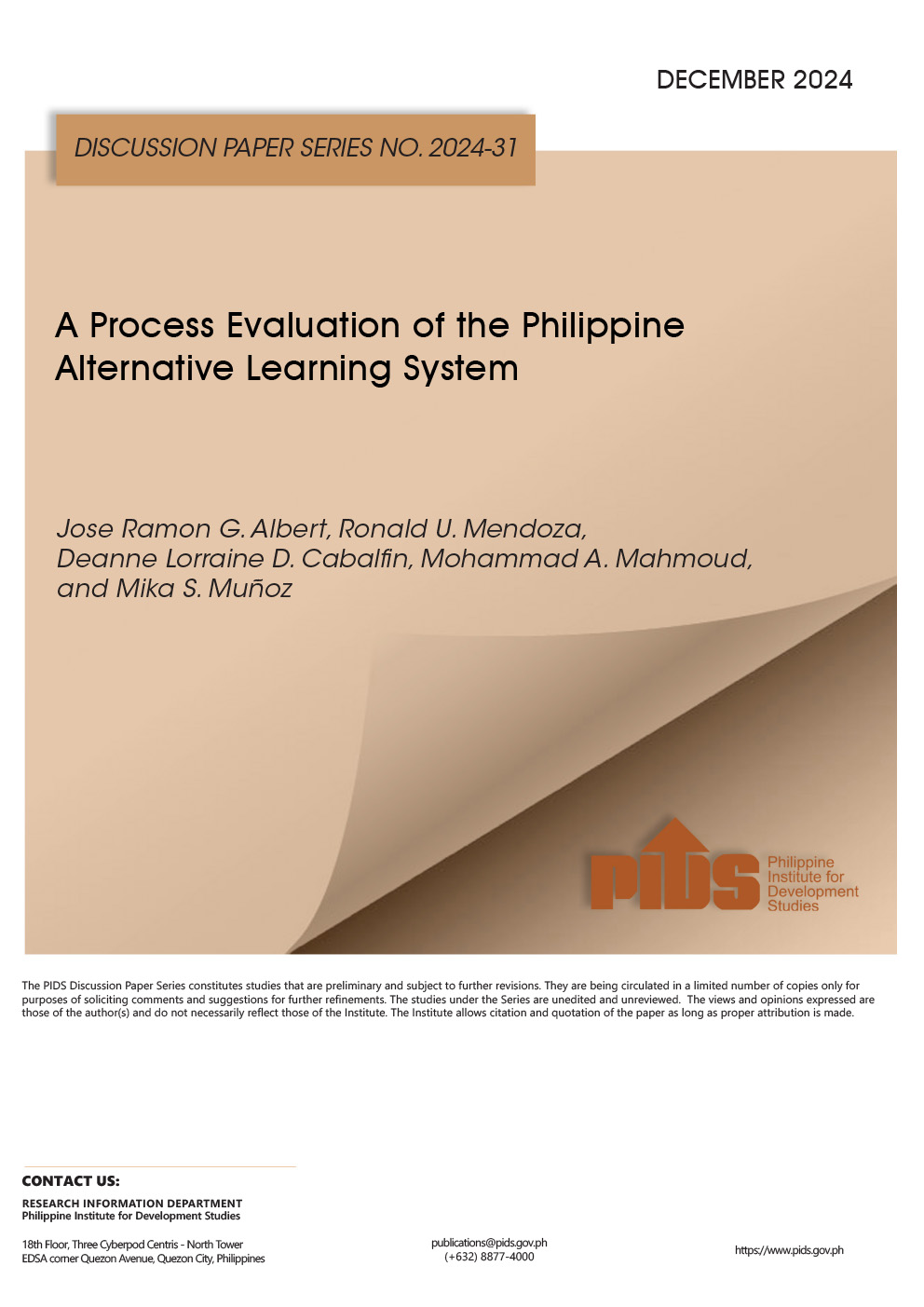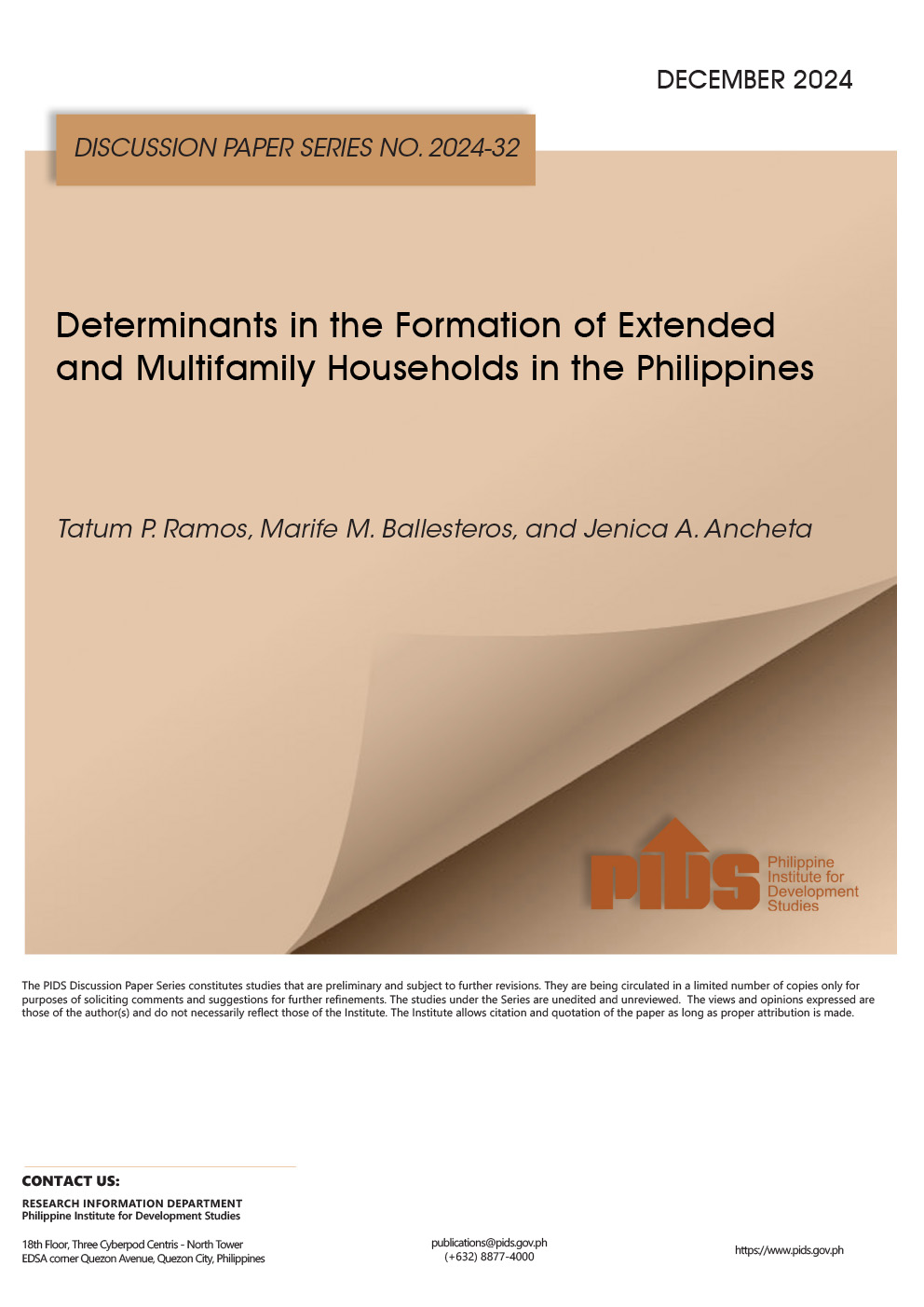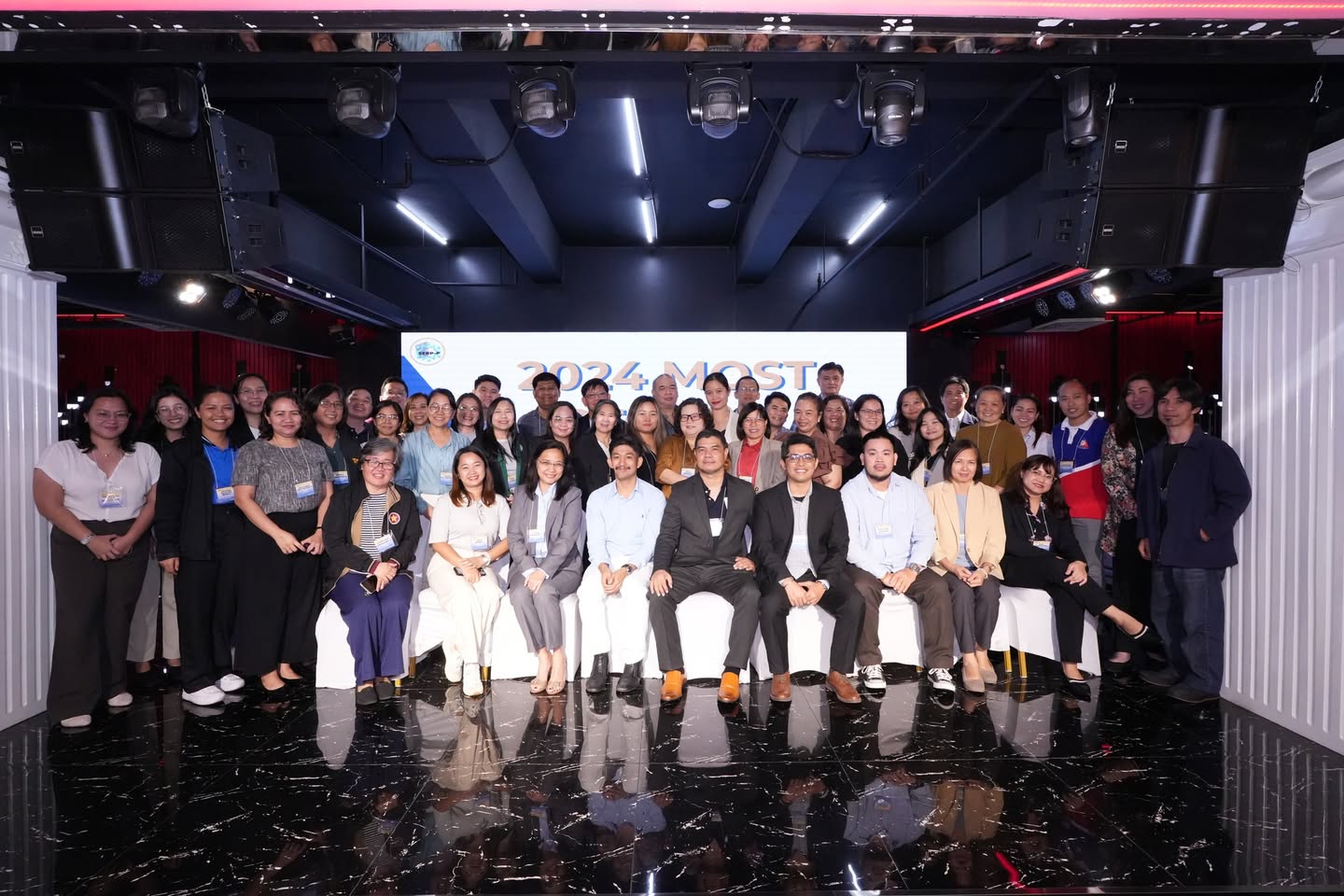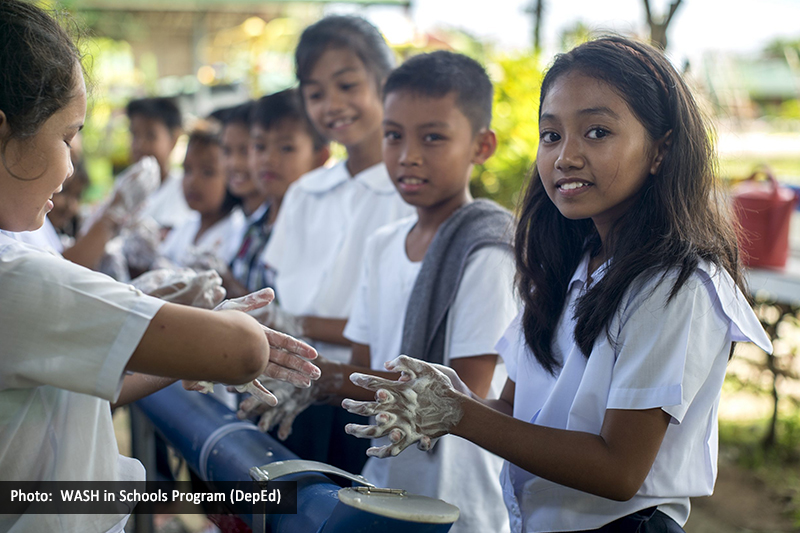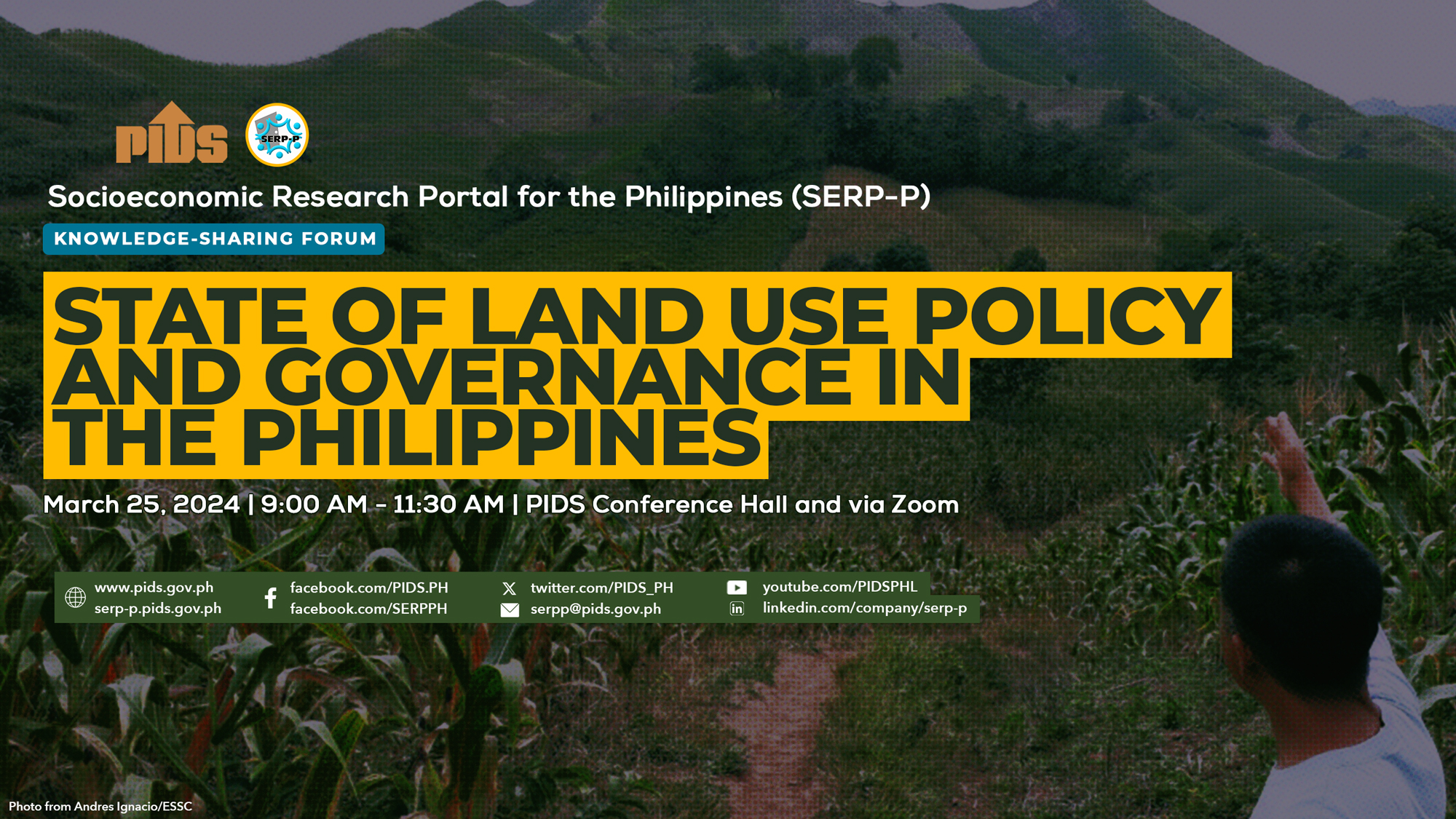The Philippines has made a major push toward development of biofuel, enacting biofuels mandates and subsidies by the Biofuels Law. To maintain food security, biofuels policies currently restrict feedstock production to marginal lands. This raises its own issues related to commercial viability, small farmer livelihood, and environmental sustainability. This study conducts a field investigation of these issues, covering small holder feedstock producers producing sugarcane, cassava, and coconut. The study finds the following: i) Biofuels development in marginal areas are potentially profitable ventures for investors, assuming stable physical and economic environment, as well as a predictable policy environment. ii) Contract growing arrangements have been largely advantageous to farmers. iii) Farmers who have entered into contract growing arrangements have a reasonable expectation of improved livelihoods. iv) Biofuels development in marginal lands are not expected to cause significant input intensification, although expansion of cultivated area for emerging feedstock such as cassava should be monitored. Rather than small holder exploitation, or environmental degradation, this study points to other major development concerns, namely maintaining policy coherence, containing costs imposed on the fuel-buying public, and rethinking the biofuel mandate, in favor of other instruments for promoting indigenous sources of renewable energy.

